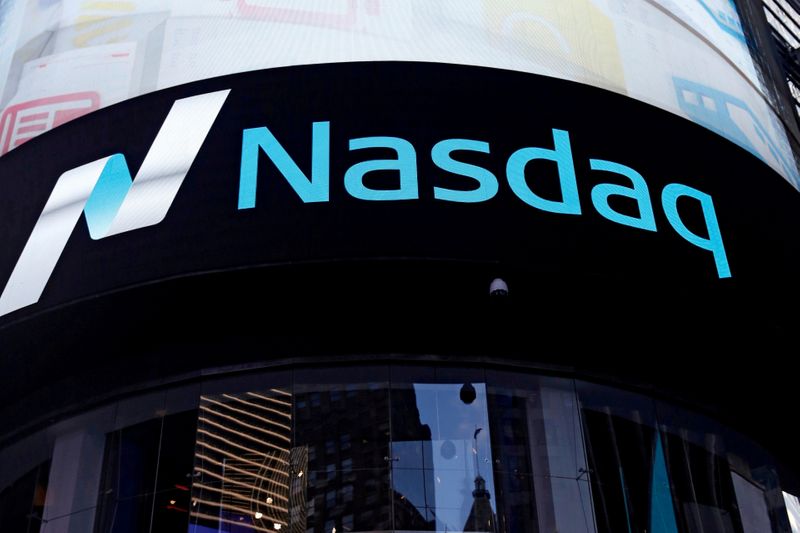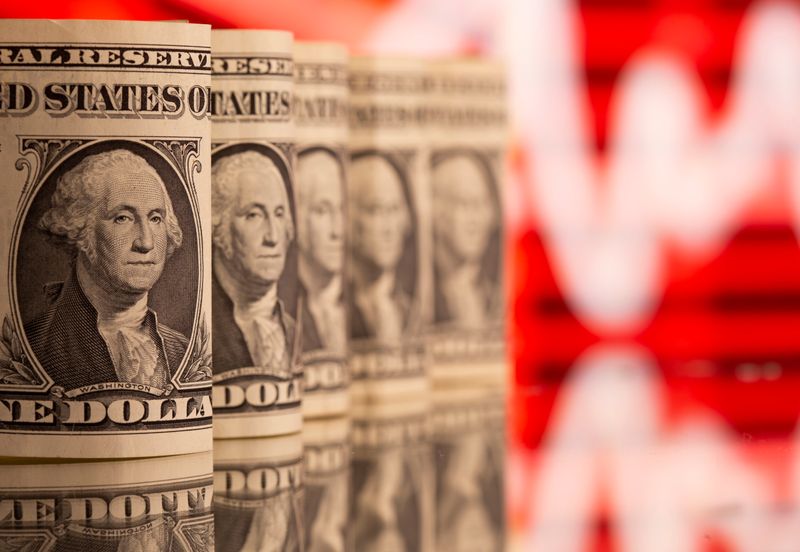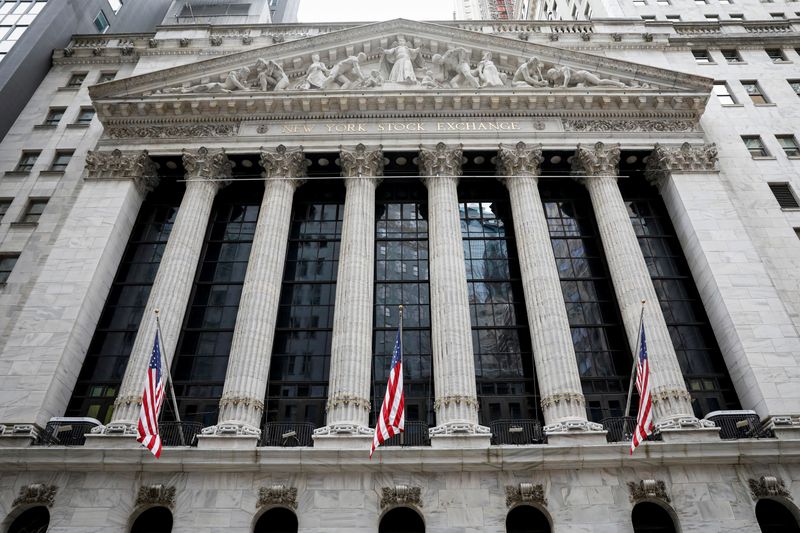WORLDWIDE: HEADLINES
It’s official: Nasdaq in a correction, with 10% fall from Feb record close

NEW YORK – The Nasdaq’s retreat from its all-time highs last month is now officially considered a correction in a bull market.
The tech-heavy index on Monday closed down 2.22% unofficially at 12,633.61, roughly 10.6% below the Feb. 12 record close at 14,095.47 and exceeding the 10% closing-basis threshold considered by market professionals as confirmation of a correction. The Nasdaq entered the latest bull market last March and rose more than 105% from the pandemic low a year ago.
Market-leading tech and tech-adjacent megacap stocks, which account for much of the Nasdaq’s total market value, thrived during the pandemic recession. But many of those shares are now seen by some investors as overvalued.
More cyclical stocks, which were battered by shutdowns and stand to benefit most from economic recovery, have since gained favor as vaccine deployment gathers steam and restrictions are lifted.
For the year, the Nasdaq is down 2.2%, while the S&P 500 and the Dow are up 1.7% and 3.9%, respectively.
Full coverage: REUTERS
Japan downgrades fourth-quarter GDP as companies scale back spending

TOKYO – Japan’s economy expanded at a slower-than-initially-reported pace in October-December, with firms tightening spending on plant and equipment as the coronavirus pandemic clouded their business plans.
The slower growth was mainly due to a sharper contraction in private inventories and capital expenditure expanding less than previously thought in the fourth quarter, even as exports remained solid.
Separate data showed household spending was hit by a much bigger annual drop in January than in the prior month, a sign the COVID-19 pandemic was keeping consumers cautious about shopping.
The economy grew an annualised 11.7% in October-December, weaker than the preliminary reading of 12.7% annualised growth to mark the second straight quarter of growth, Cabinet Office data showed Tuesday.
The reading, which was weaker than economists’ median forecast for a 12.8% gain, translates into a real quarter-on-quarter expansion of 2.8% from October-December, versus a preliminary 3.0% gain.
Capital spending grew 4.3% from the previous quarter, lower than a preliminary 4.5% rise, but outpacing the median forecast for a 4.1% increase.
Private inventories, including raw materials and manufactured products, subtracted 0.6 percentage point from revised gross domestic product growth (GDP), which was more than a negative preliminary contribution of 0.4 percentage point.
Full coverage: REUTERS
WORLDWIDE: FINANCE / MARKETS
Dollar reigns supreme on yields, recovery advantage

TOKYO – The dollar held near a 3 1/2-month high against its rivals on Tuesday as higher bond yields and expectations of faster economic normalisation from the pandemic in the United States put the U.S. currency at an advantage.
The dollar’s index against six major currencies rose 0.1% to 92.469, its highest since late November, building on a 0.5% gain on Monday.
Against the yen, the dollar rose to 109.235 yen, its highest level in nine months, while the euro was nearly flat at $1.18530, hovering near lows last seen in late November.
The safe-haven Swiss franc softened to 0.9369 per dollar, its lowest level since late July, while the British pound inched up 0.1% to $1.3834 , having touched a three-week low of $1.3779 on Friday.
“The move in the last two to three weeks has been driven by real yields, and that is what is supporting the dollar,” said Mayank Mishra, an FX strategist at Standard Chartered Bank in Singapore.
“It is interesting that despite the fact that U.S. equities have started to bear the pain of rising yields, dollar/yen continues to make new highs,” Mishra added. “The pair’s own risk correlations have broken down and real yields are in the driving seat.”
The dollar index has firmed more than 2% so far this year as upbeat marcoeconomic data, combined with a loose monetary policy, has lifted bond yields and pressured richly valued U.S. technology stocks. [US/] [.N]
All eyes will now be on the U.S. Federal Reserve’s two-day meeting next week, although expectations are low that the central bank will announce major policy changes after Chair Jerome Powell last week did not express concern about the rise in bond yields.
Full coverage: REUTERS
Oil prices rise on expected economic recovery, likely drawdown in oil stocks

SINGAPORE – Oil prices rose on Tuesday on expectations of a recovery in the global economy after U.S. Senate approval of a $1.9 trillion stimulus bill and on a likely drawdown in crude oil inventory in the United States.
But a stronger dollar and receding fears of oil supply disruption from Saudi Arabia after an attack on its oil facilities capped price gains.
Brent crude futures for May rose by 32 cents, or 0.5%, to $68.56 a barrel by 0125 GMT, while U.S. West Texas Intermediate (WTI) crude for April rose 19 cents, or 0.3%, to $65.24.
“Fundamentals remain incredibly supportive, especially with Saudi Arabia in full control pursuing a tight oil policy,” Stephen Innes, chief global markets strategist at Axi said in a note.
“Brent is currently holding up above $68, suggesting speculators are likely dipping their toes back in after yesterday’s chaos.”
On Monday, Brent crude oil price rose above $70 a barrel after Yemen’s Houthi forces fired drones and missiles at the heart of the Saudi oil industry, including a Saudi Aramco facility at Ras Tanura vital to petroleum exports.
Full coverage: REUTERS
Stocks dip as yields hold near one-year high

NEW YORK – A gauge of global stocks dipped in choppy trading on Monday as investors eyed the yield on U.S. Treasuries for signs of inflation pressures in the wake of the U.S. Senate’s passage of a $1.9 trillion stimulus bill.
After climbing as high as 1.613% on the session, the third time above 1.6% in the past year, the U.S. 10-year Treasury yield held near a more than one-year high.
“If rates are grinding higher because people are getting optimistic about what economic growth looks like, that is still supportive for equity prices,” said Tom Hainlin, global investment strategist at U.S. Bank Wealth Management’s Ascent Private Wealth Group in Minneapolis.
“It is just if those rates start to get away from you on inflation expectations, then the multiples on stocks come down and there is more concern about that,” he added.
Benchmark 10-year notes last fell 15/32 in price to yield 1.6064%, from 1.554% late on Friday.
Investors have wrestled with whether the stimulus will help global growth rebound faster from the COVID-19 downturn or cause the world’s biggest economy to overheat and lead to runaway inflation.
U.S. Treasury Secretary Janet Yellen said on Monday that President Joe Biden’s coronavirus aid package will provide enough resources to fuel a “very strong” U.S. economic recovery, and noted “there are tools” to deal with inflation.
Full coverage: REUTERS



